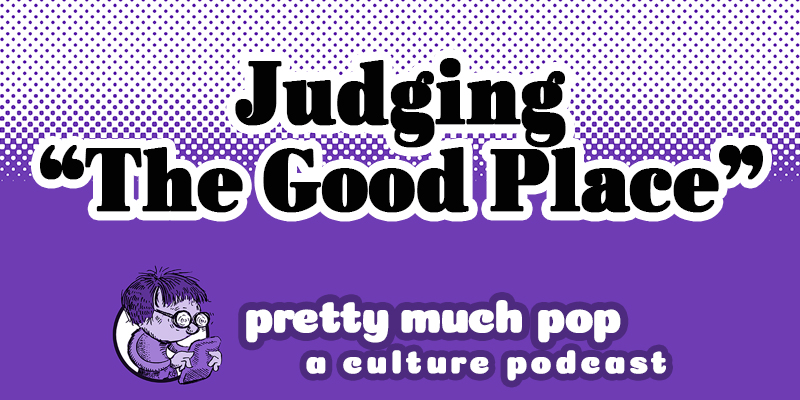
Mark Linsenmayer, Erica Spyres, and Brian Hirt discuss Michael Schur's NBC TV show. Is it good? (Yes, or we wouldn't be covering it?) Is it actually a sit-com? Does it effectively teach philosophy? What did having actual philosophers on the staff (after season one) contribute, and was that enough? We talk TV finales, the dramatic impact of the show's convoluted structure, the puzzle of heaven being death, and more.
Here are a few articles to get you warmed up:
- "The Good Place’s Final Twist" by Karthryn VanArendonk
- "The Good Place Was a Metaphor All Along" by Sophie Gilbert
- "The Two Philosophers Who Cameoed in the Good Place Finale on What They Made of Its Ending" by Sam Adams
- "5 Moral Philosophy Concepts Featured on The Good Place" by Ellen Gutoskey
If you like the show, you should also check out The Official Good Place Podcast, especially the interviews with Schur himself. There are also supplementary educational videos with professor Todd May like this one on existentialism.
A few clips: What's the deal with the "Jeremy Bearimy" time measurement? The Trolley Problem, meeting Hypatia, finale clip with Arvo Part's "Spiegel Im Spiegel."
This episode includes bonus discussion that you can only hear by supporting the podcast at patreon.com/prettymuchpop. This podcast is part of the Partially Examined Life podcast network.
Pretty Much Pop: A Culture Podcast is the first podcast curated by Open Culture. Browse all Pretty Much Pop posts or start with the first episode.
Moral Philosophy on TV? Pretty Much Pop #32 Judges The Good Place is a post from: Open Culture. Follow us on Facebook, Twitter, and Google Plus, or get our Daily Email. And don't miss our big collections of Free Online Courses, Free Online Movies, Free eBooks, Free Audio Books, Free Foreign Language Lessons, and MOOCs.
from Open Culture https://ift.tt/3296a6C
via Ilumina
krrrrrrrrrr
ReplyDelete